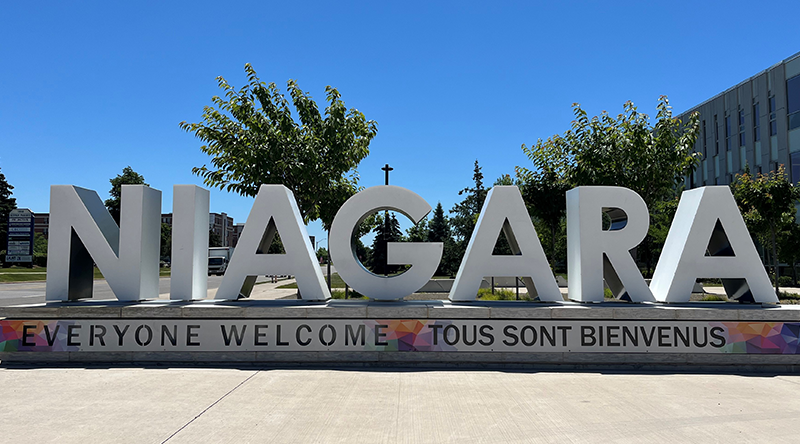Last week was Council week! You can find meeting materials at the following links:
- Council agenda – https://pub-niagararegion.escribemeetings.com/Meeting.aspx?Id=101f3dce-0e4f-4ae3-8d89-e860201894dc&Agenda=Merged&lang=English
- Council video – https://www.youtube.com/embed/X635Tsq0pAg?rel=0&autoplay=1
Here’s a summary of three things that stood out on the Council agenda.
1. Public Health & Social Services Standing Committee received a report on recommending a workplace violence strategy to mitigate the impact of violence towards our Emergency Medical Services responders. The Committee heard that instances of violence have been increasing, under reporting is common and there’s an acceptance that it’s part of the job. This year is anticipated to be the worst in terms of occurrences and this is a common experience by first across Canada. The recommendations included:
- System level strategies to create a safer space
- Request to amend the Criminal Code by support Bill C-321 and C-345
- C321 requests that Courts to consider an EMS victim as part of the sentencing by recognizing they perform an essential public service
- C345 calls for changes to the criminal code for more severe penalties for assault or murder of a firefighter or paramedic. Currently these penalties are in place if the victim is a police officer.
More information on the Staff Report:
Media Coverage of the Topic:
- https://www.pelhamtoday.ca/local-news/niagara-ems-taking-steps-to-address-violence-toward-front-line-staff-7664240
- https://www.stcatharinesstandard.ca/news/niagara-region/paramedics-attacked-while-saving-lives-increased-violence-against-first-responders-in-niagara-report-says/article_02f6e04f-e5b3-5812-875f-0b7b7afc2afa.html
2. Planning and Economic Development held a Statutory Public Meeting for a Regional Official Plan Amendment Application (Proposed Uppers Quarry, City of Niagara Falls). The Committee received delegations from over a dozen community members who lived in close proximity to the proposed quarry, all voicing concerns over its location. The proposal was received for information only and a staff decision on the recommendation is expected to come forward at a future meeting.
More information on the topic
Media coverage:
- https://www.stcatharinesstandard.ca/news/council/quarry-proposal-is-the-pits-niagara-falls-residents-say/article_5dd21ac3-1442-54d2-b1a1-4ccbd8dfc127.html
- https://www.cbc.ca/news/canada/hamilton/walker-quarry-fernwood-1.6961334
3. Motion on revenue loses resulting from Bill 23. I put forward a motion that was unanimously supported by Council asking for an update on compensation resulting from revenue loses we are experiencing from Bill 23. Bill 23, or the More Homes Built Faster Act, significantly impacts a municipalities ability to collect development charges, which are traditionally used to fund infrastructure needs. In other words – growth traditionally has paid for growth. With these changes, investment is growth projects will no longer be paid entirely with development charges leaving municipalities to cover these costs with the only other revenue tool they have ~ property taxes. This shifts the cost burden from development to property taxes.
What does this mean? Bill 23 impacts Niagara’s in the following way:
- 20 percent reduction in our Development Charge rates (ie. loss of revenue) resulting in loss of $35 million over the 5 year DC bylaw term
- $60 million will be stripped from our capital plan that was earmarked for social housing
- anticipated loss of $121 million over 10 years to fund growth studies and land acquisition costs required for growth planning
Acknowledging that the Province has said on numerous occasions that it would make municipalities “whole” where revenue loses occurred, my motion served as a reminder to that commitment and asked for an update on when funding can be made available.
These funds are an important piece of our upcoming budget this year adding an additional 2.5% increase at a time when municipal budgets are particularly strained, growth pressures and consistent and gaining infrastructure needs renewal. We’re starting at a property tax increase of potentially 9%. Removing these funds could result in a starting point for budget negotiations at 6.5% which is significant.
My motion can be found at:
https://pub-niagararegion.escribemeetings.com/filestream.ashx?DocumentId=33896
Media Coverage:
https://www.pelhamtoday.ca/local-news/region-pushing-province-on-two-issues-7736578
Looking for more information? Contact me. Happy to provide more information or context on regional issues.
